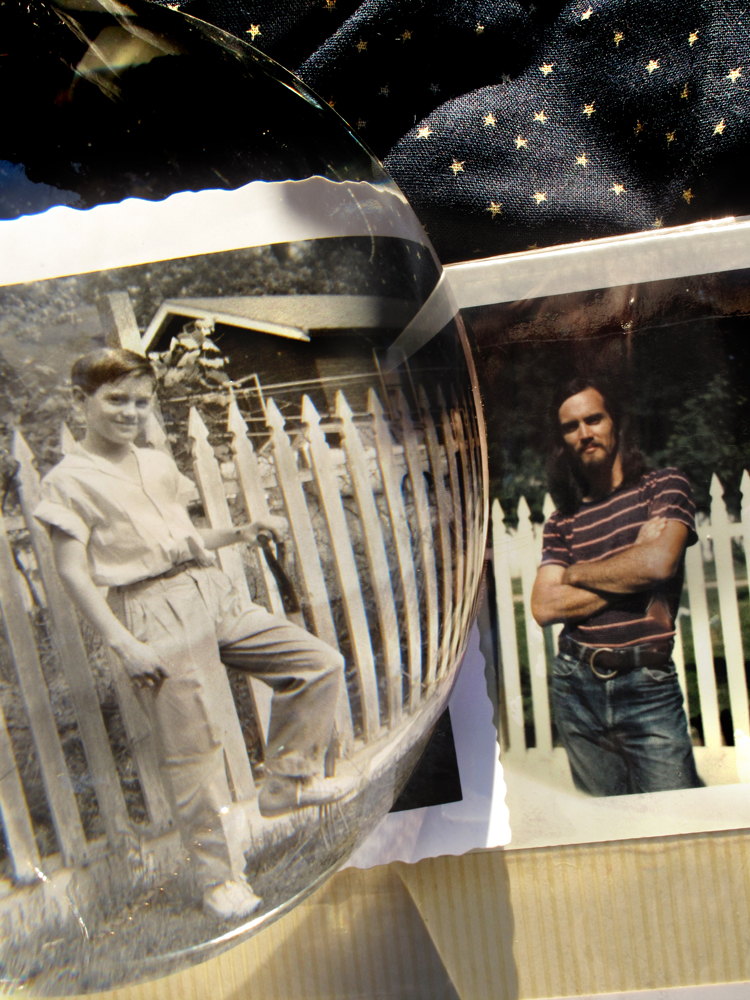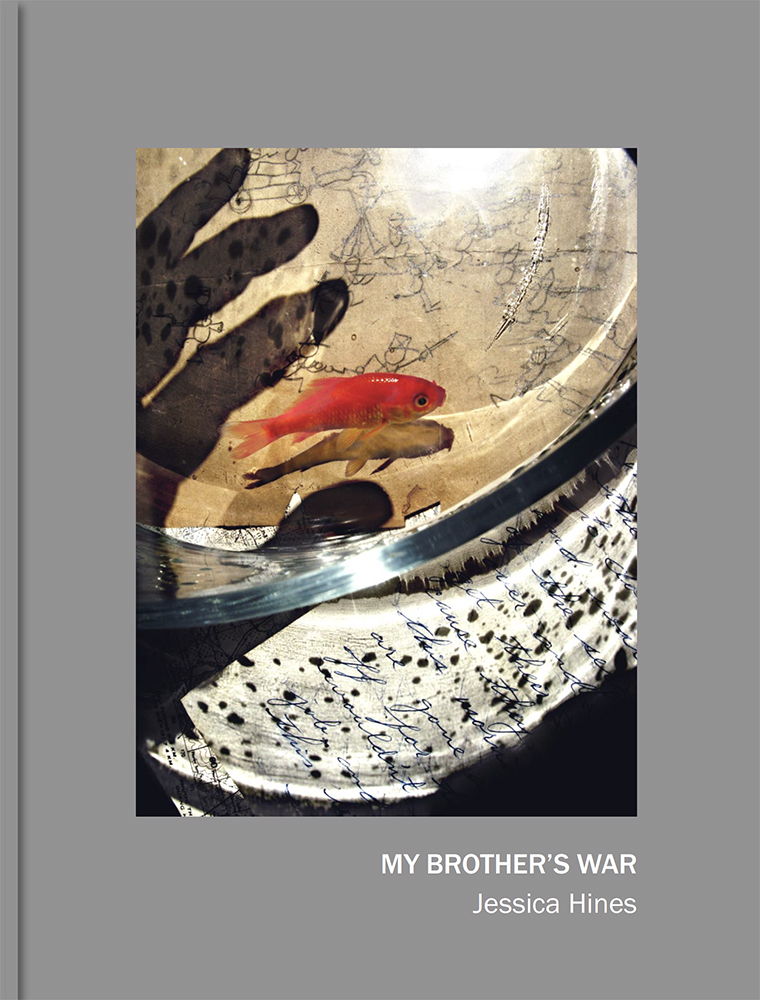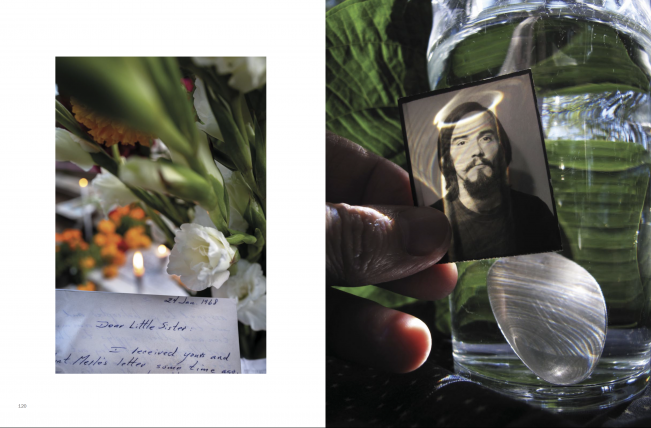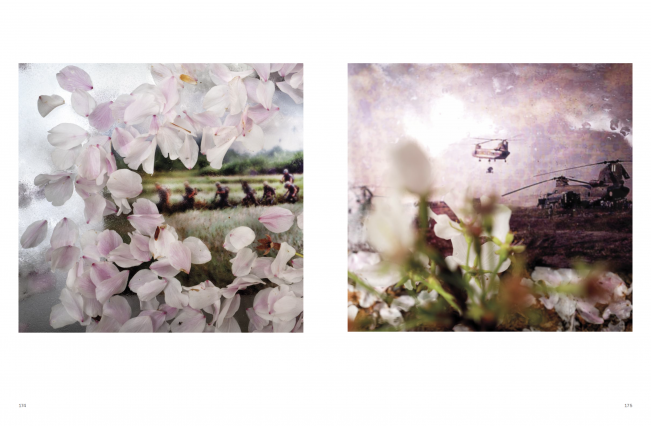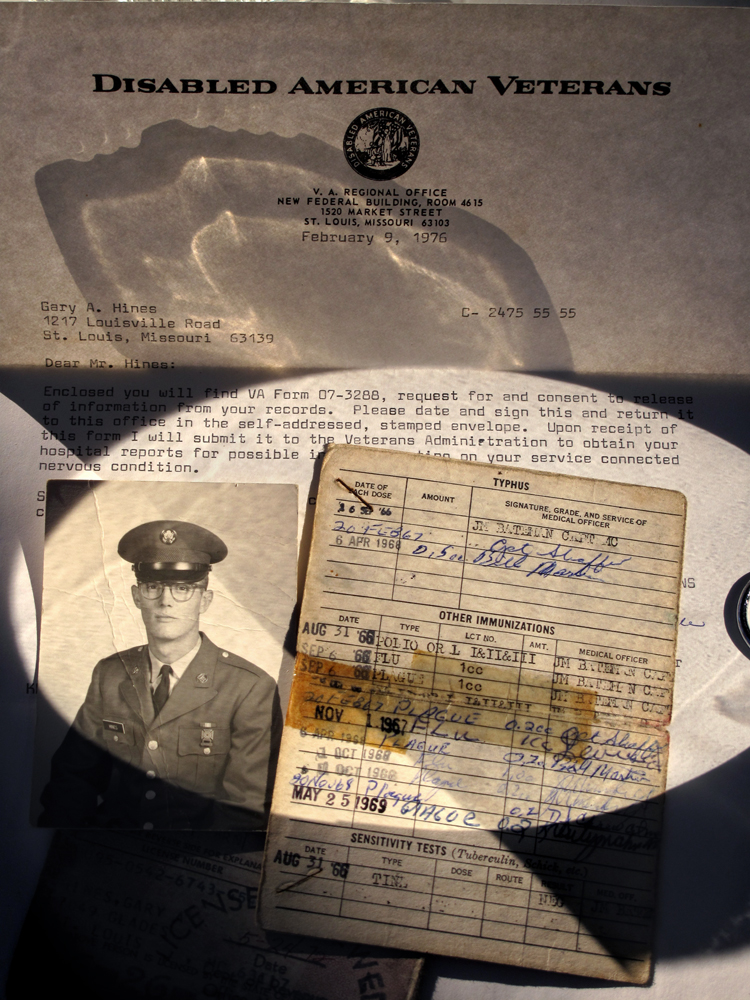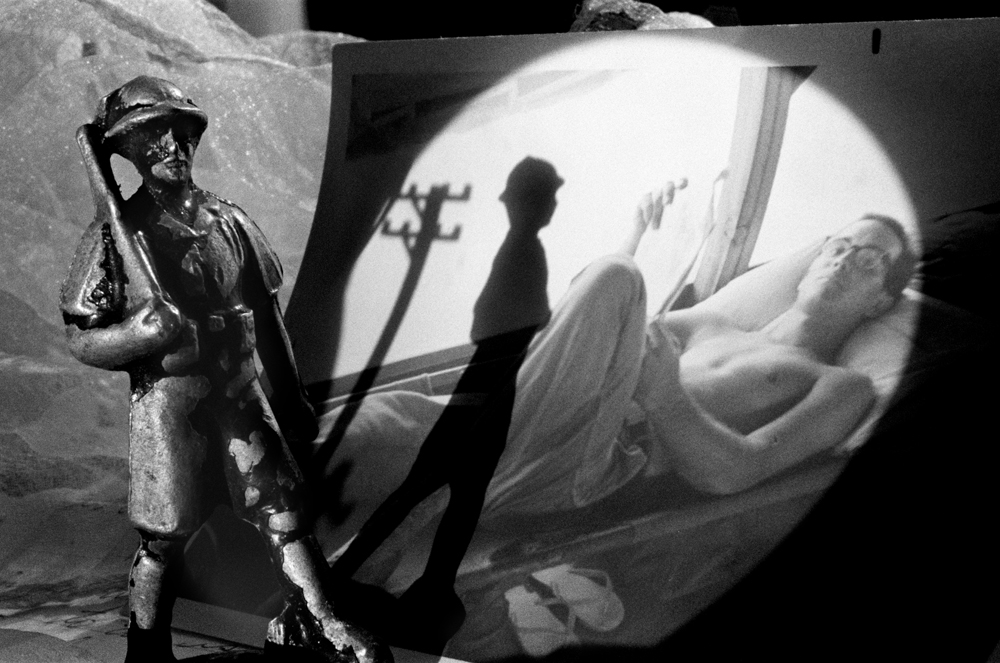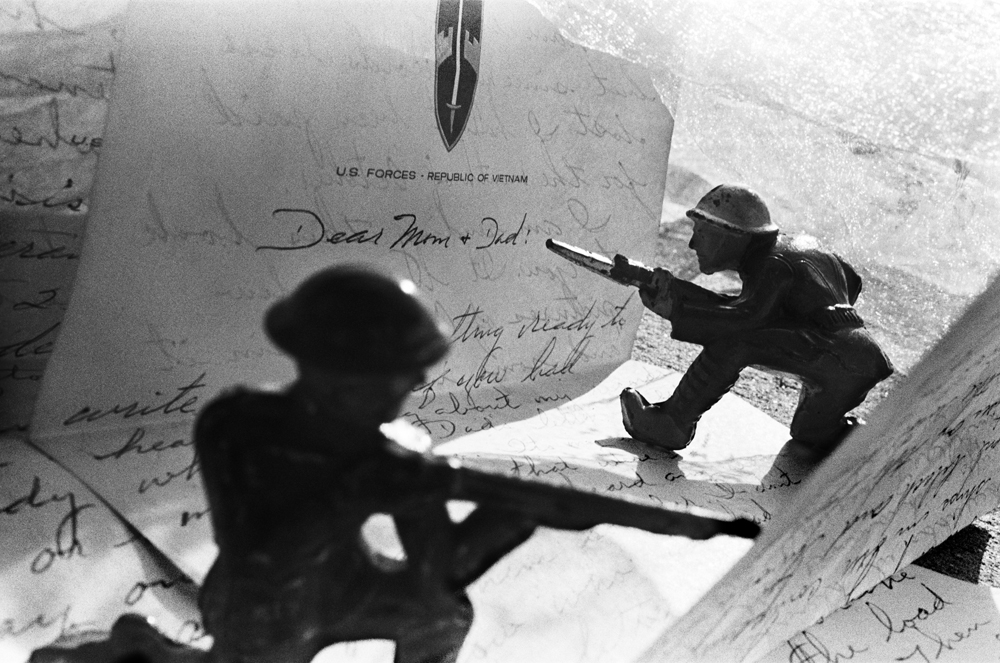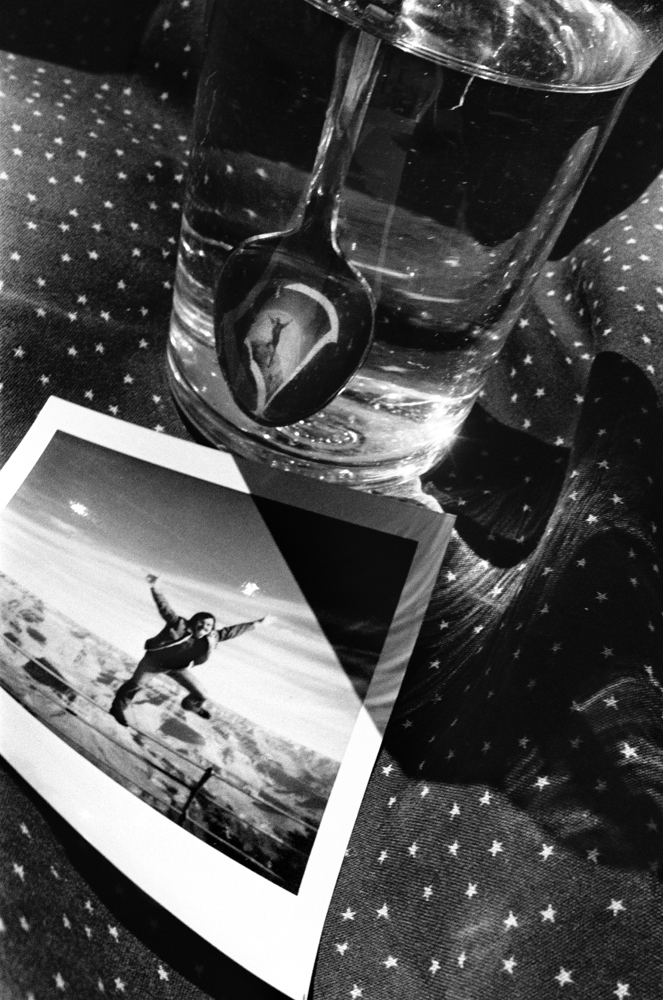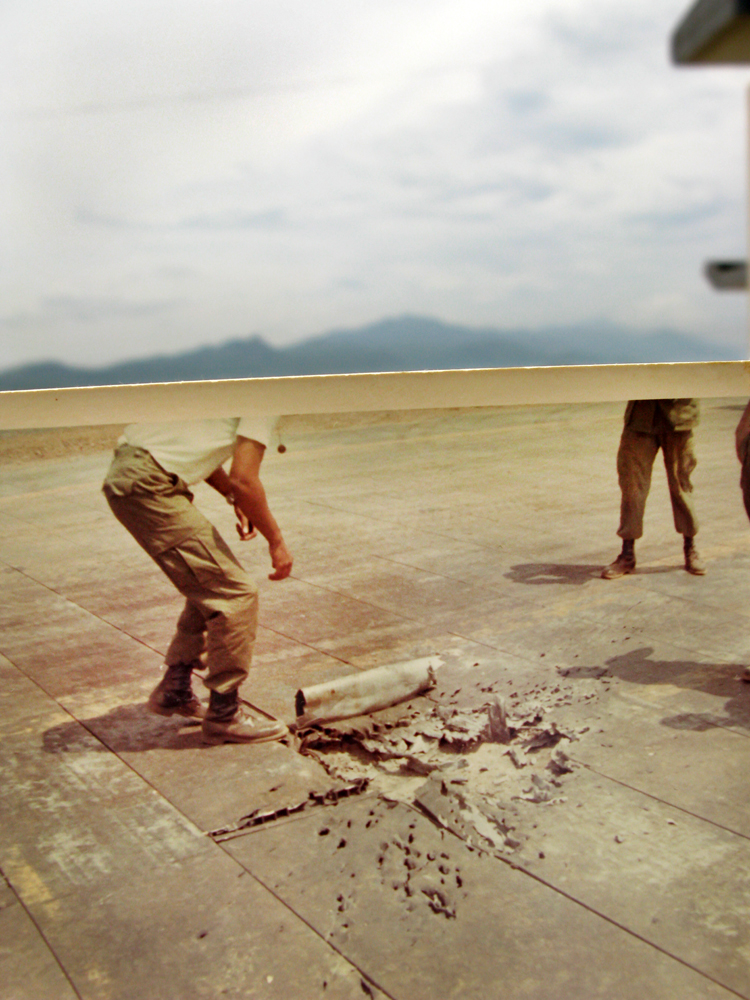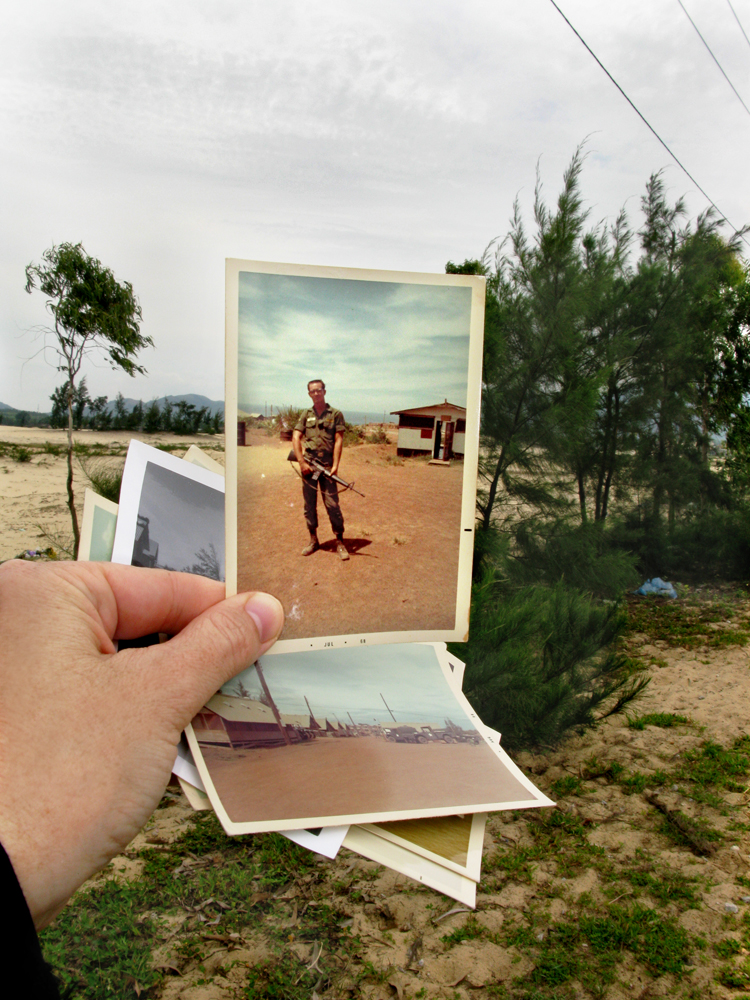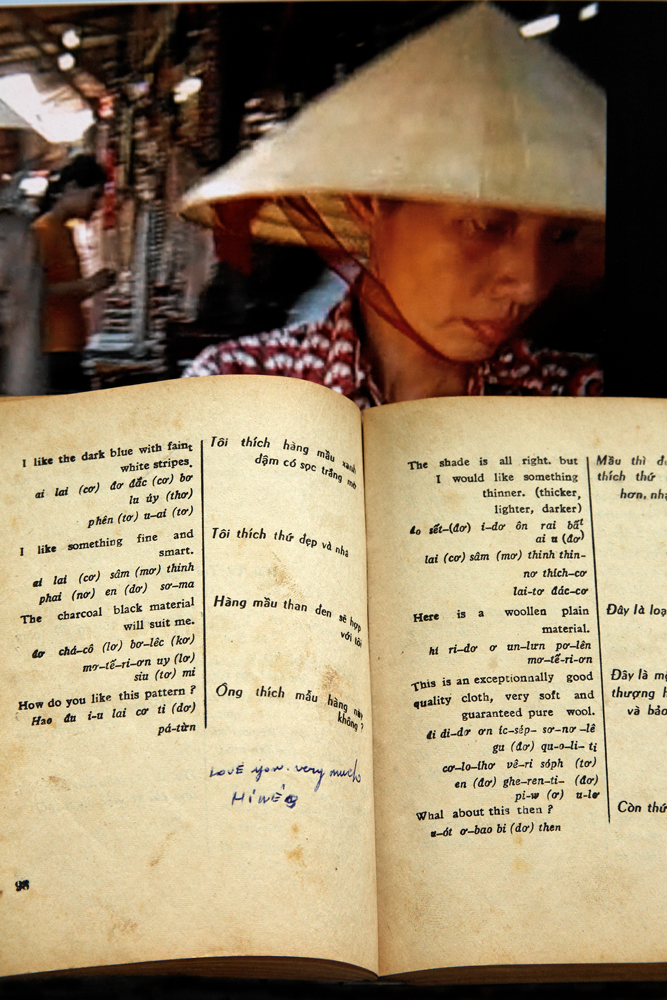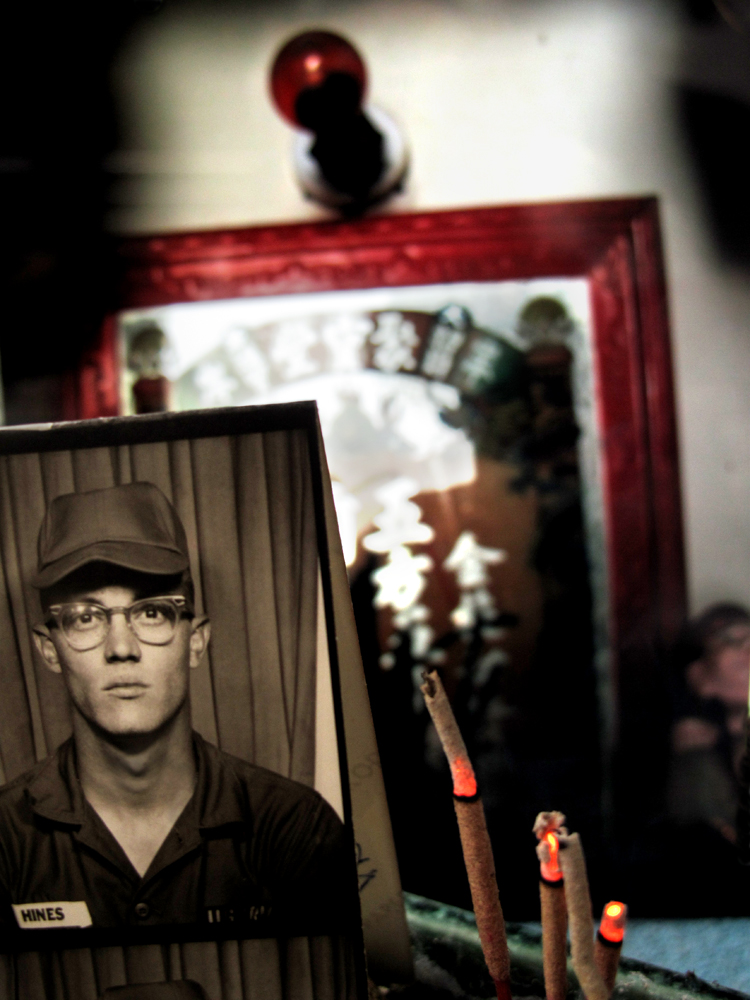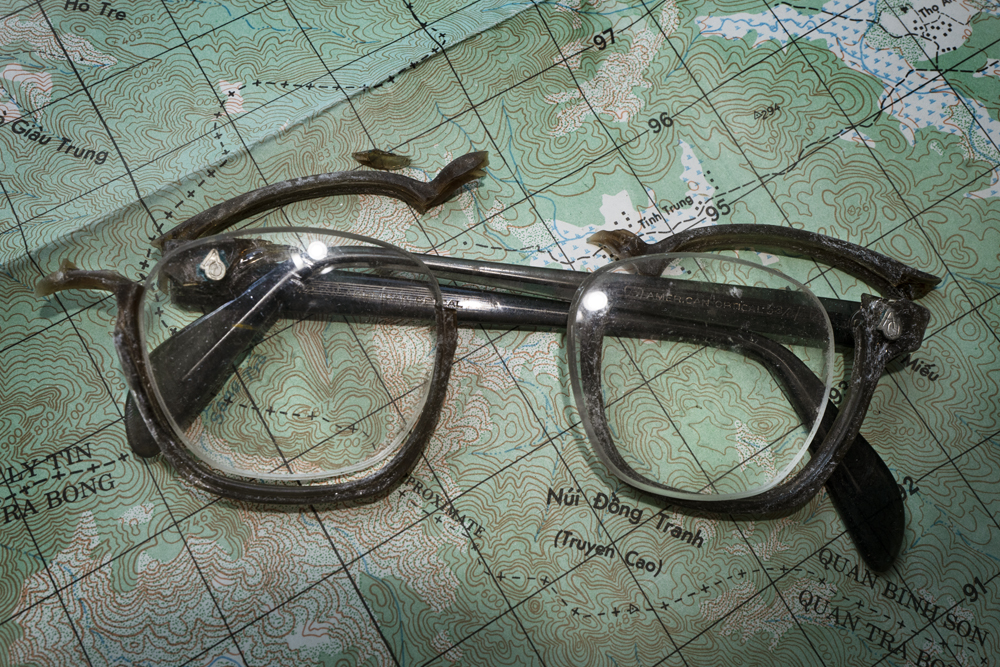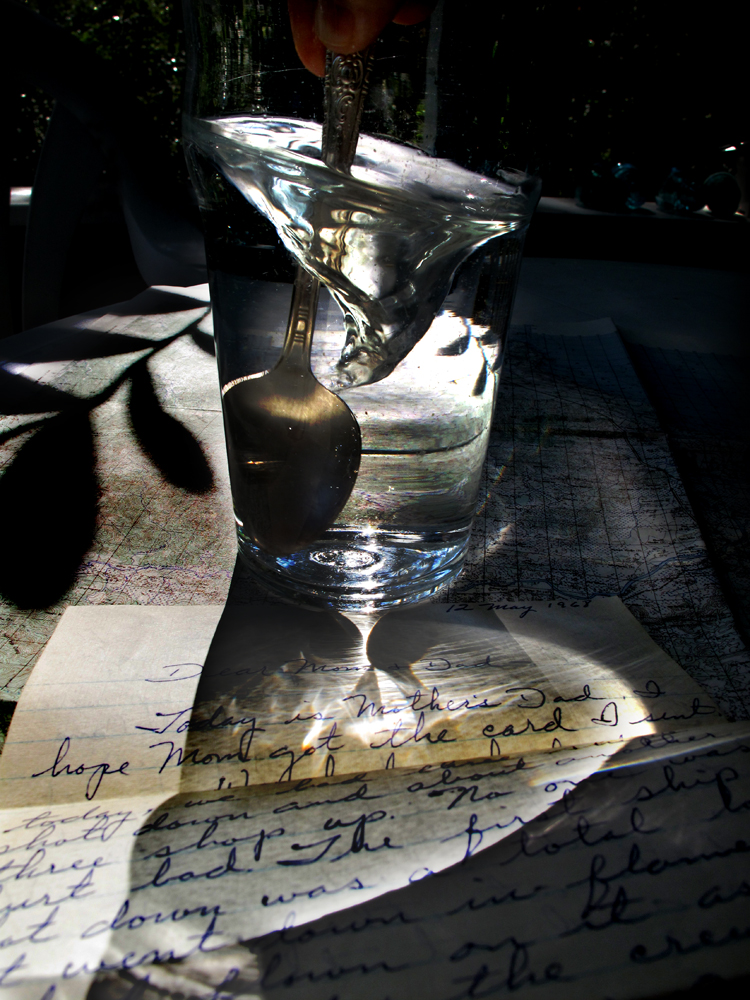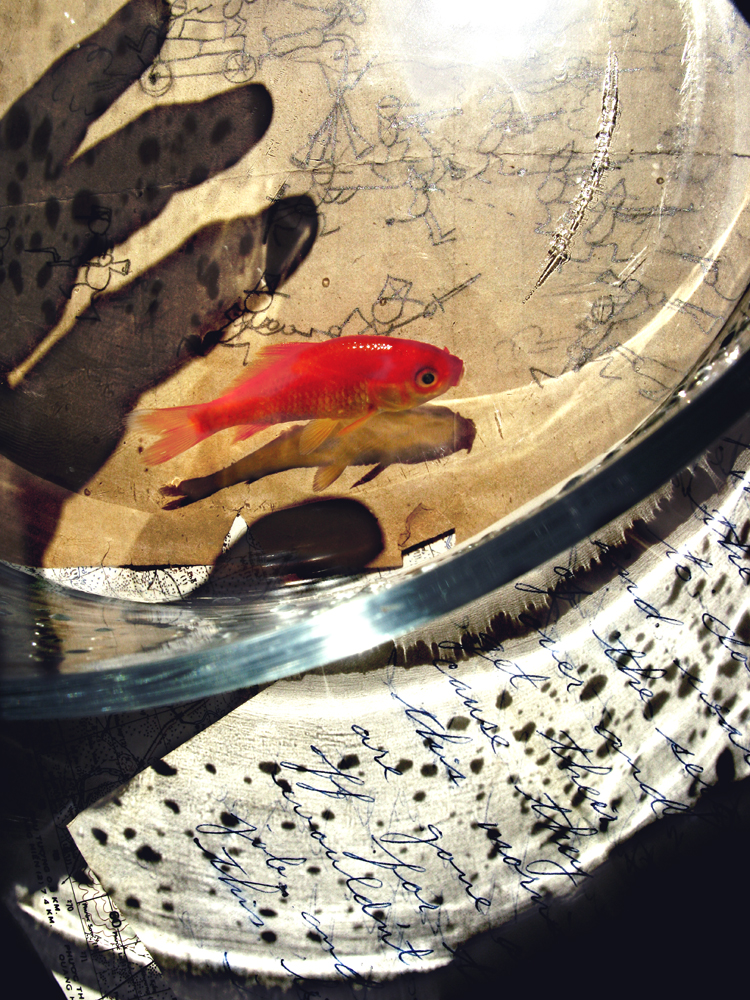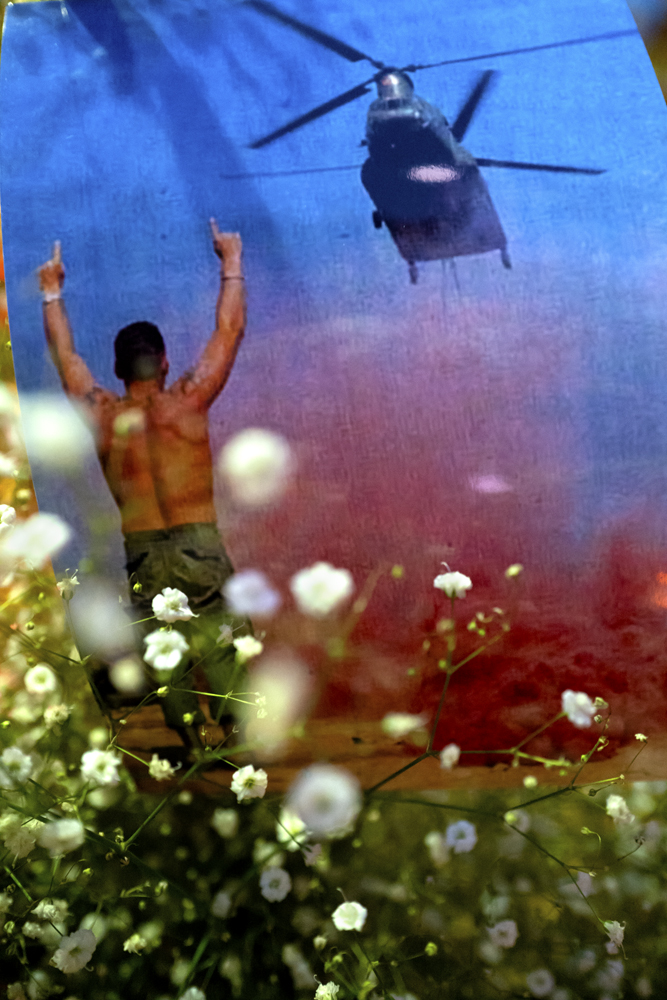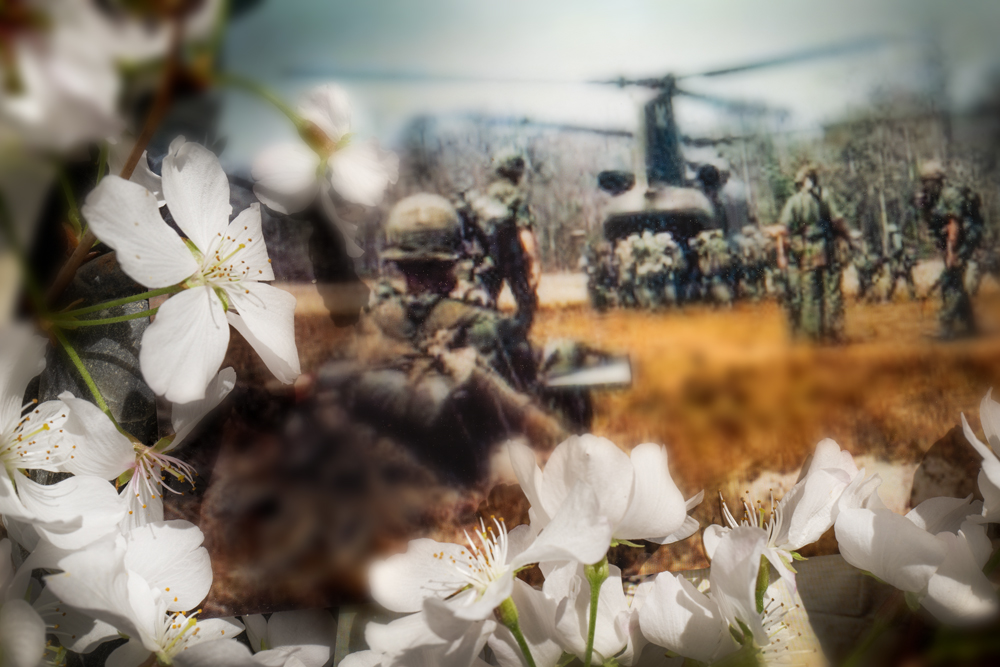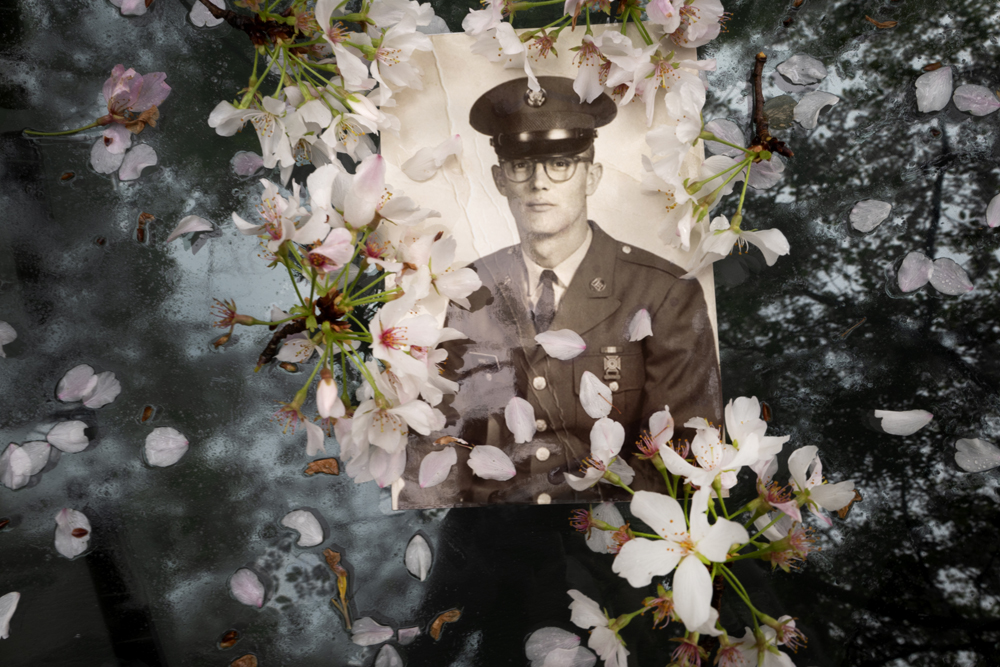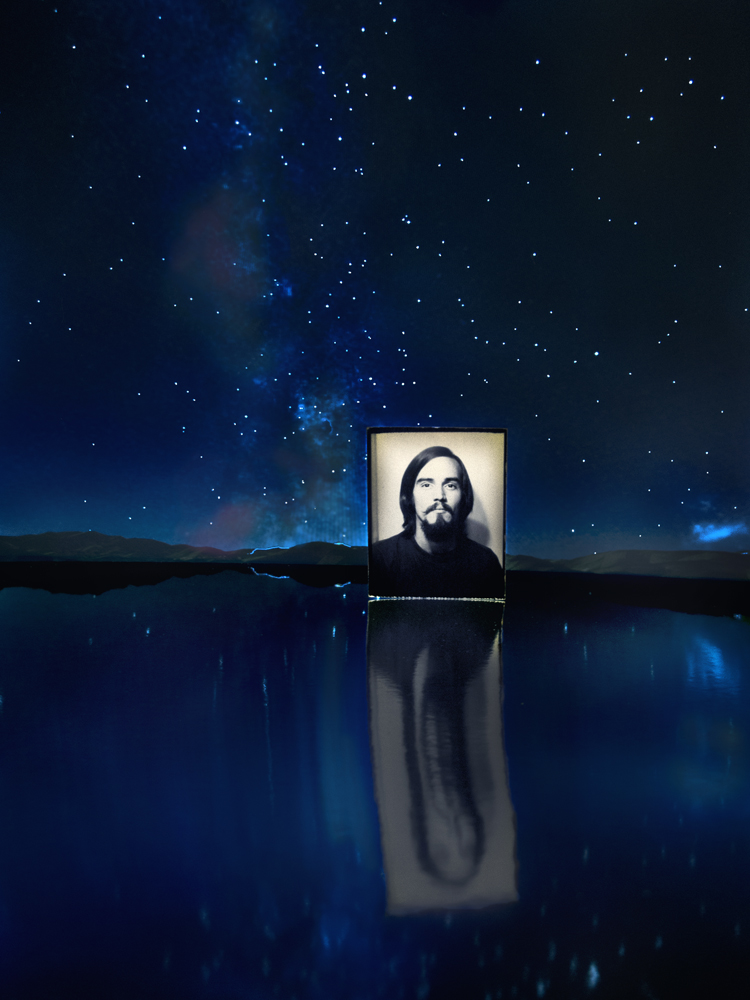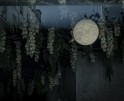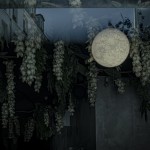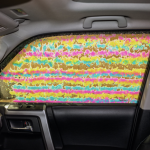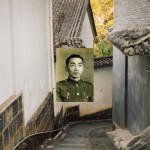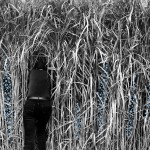Jessica Hines: My Brother’s War: My Brother’s War: For All the Love You Left Behind
Where we drift and call it dreaming
We can weep and call it singing
-Iron & Wine
“Making this work is healing for me,” writes Jessica Hines in her new photo book My Brother’s War published by Dewi Lewis, with the generous support of
The Gilman & Gonzalez-Falla Arts Foundation. For many, subjects like war, family relationships, post-traumatic stress and especially suicide are better swept under the rug. Jessica Hines takes the opposite approach in her 13-year project. She is unflinching in her desire to use photography as a tool to shed light in the dark corners. Her loss is seen as her reality and something we can all learn from.
I can only tip my hat to Jessica for her courage and determination to make this book. She faced incredible difficulties and even guilt about causing pain to those she talked to about the war and unwittingly bring back bad memories.
With the current conflict in Ukraine, we can only imagine that the pain endured by Gary Hines and his family will be repeated many times over. Hopefully we can learn some lessons from this important work. The first chapter, Remembrance, was meant to be a simple means of honoring her brother, Gary, who fought in Vietnam in the 1960s. He was discharged with a “service-connected nervous condition” in 1969 and took his own life a decade later. These black and white photos of toy soldiers photographed next to letters and photos of her brother form the introduction to the larger story we learn about later.
Many of the letters that Gary sent home are beautifully reproduced in the book. They begin with his arrival and confusion about where he is and what his job is in Vietnam. Eventually we learn about a Vietnamese girlfriend that Gary kept secret from his family, but who is revealed in notes left in an English/Vietnamese dictionary.
Reading the letters, we learn of the how scary the war in Vietnam must have been for the young Americans sent there. The letters after the war are even more poignant revealing Gary’s lack of direction and financial instability. The photographic approach uses the letters and vintage photographs and places them in context to their location and meaning. Jessica traveled twice to Vietnam and to the house where her brother took his life. She often holds the photo in front of the camera which could be a forced visual but ends up as more of a self-portrait than a staged still life.
In the final chapter, The Transmutation of Memory, are the strongest photographs where Jessica uses cherry blossoms as a metaphor for the cycle of a short life. She concludes, “I employ the temporal beauty of flowers in remembrance of veterans of all wars and innocent civilians, the world over, who suffer the consequences. I seek to inspire resilience and courage, and to inspire that our only alternative is a peaceful coexistence.”
My Brother’s War can be seen as a testament to the healing power of photography. It is also an acknowledgement that it is possible to find peace in struggle and the role that art can play helping us live our lives to the fullest. I find these lyrics of Call It Dreaming by Iron & Wine to be relevant to the journey of Jessica Hines and My Brother’s War:
And we get a chance to say
Before we ease away
For all the love you & I have left behind
You can have mine…
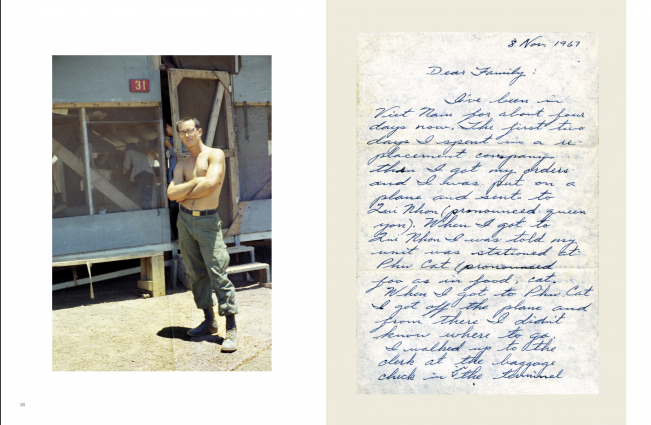
©Jessica Hines, Gary in Vietnam, First Letter Home, Spread from My Brother’s War, published by Dewi Lewis
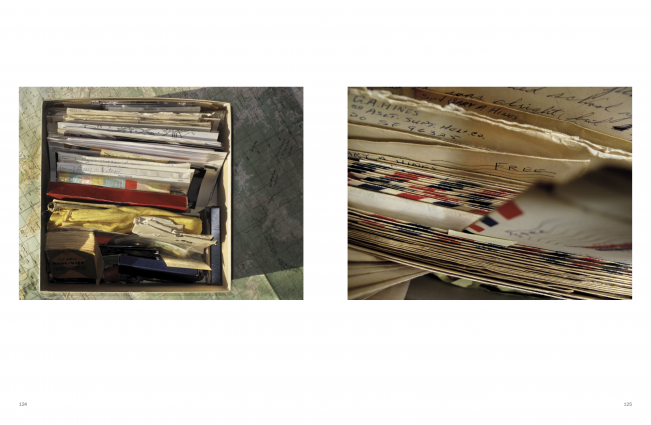
©Jessica Hines, The Belongings — box of ephemera, Spread from My Brother’s War, published by Dewi Lewis
My Brother’s War is a series of personal photographs that reflect my investigation into the circumstances of my brother’s early death after the war in Viet Nam. The work is about loss, healing, hope, and living in the aftermath of war – both for a veteran and for his family and friends.
Gary was sent to Viet Nam at the height of the war in 1967. He arrived in Qui Nhon on November 4th. It was my 8th birthday. Honorably discharged from the army in 1969 with a “service connected nervous condition”, we later came to know his plight as Post Traumatic Stress Disorder. My pre-war brother, a normal and well-adjusted person, had become, according to the U.S. Veterans Administration, 50% disabled. He took his own life about ten years later.
Determined to find more information about what happened to him, I contacted his comrades 35 years after the war, traveled to two reunions of his platoon, found the home where he died, his burial place, and twice traveled to Chu Lai, Viet Nam, where Gary was stationed during the war. I used his photographs and letters to serve as my guides, sometimes combining his photographic vision with mine. The project, thirteen years of effort, has evolved and changed with time, using a variety of formats to tell the story.
In titling this work, “My Brother’s War”, I make reference to other families worldwide that have lost, and are presently losing loved ones to war. My works seeks to inspire, as the only alternative, a peaceful coexistence. – Jessica Hines
Artist and storyteller Jessica Hines, uses the camera’s inherent quality as a recording device to explore illusion and to suggest truths that underlie the visible world. At the core of Hines’ work lies an inquisitive nature inspired by personal memory, experience and the unconscious mind. Hines began to cultivate her creative disposition early in life and her love of the arts led her to attend Washington University in St. Louis, where she earned a Bachelor of Fine Arts degree. Continuing to pursue her interests, she studied photography at the University of Illinois at Urbana-Champaign where she received a Master of Fine Arts degree.
Hines lectures and exhibits her award winning work throughout North and South America, Asia, Europe, and Oceania.
Posts on Lenscratch may not be reproduced without the permission of the Lenscratch staff and the photographer.
Recommended
-
Joan Haseltine: Bluest BruiseDecember 4th, 2024
-
Smith Galtney in Conversation with Douglas BreaultDecember 3rd, 2024
-
Constance Jaeggi: Escaramuza, the Poetics of HomeNovember 24th, 2024
-
Ci Demi: Unutursan Darılmam (No Offence If You Forget)November 23rd, 2024
-
Interview with Tabitha Barnard and Jake Benzinger: “Dead Trees Speak to Me” and Independent Photo Book PublishingNovember 21st, 2024

